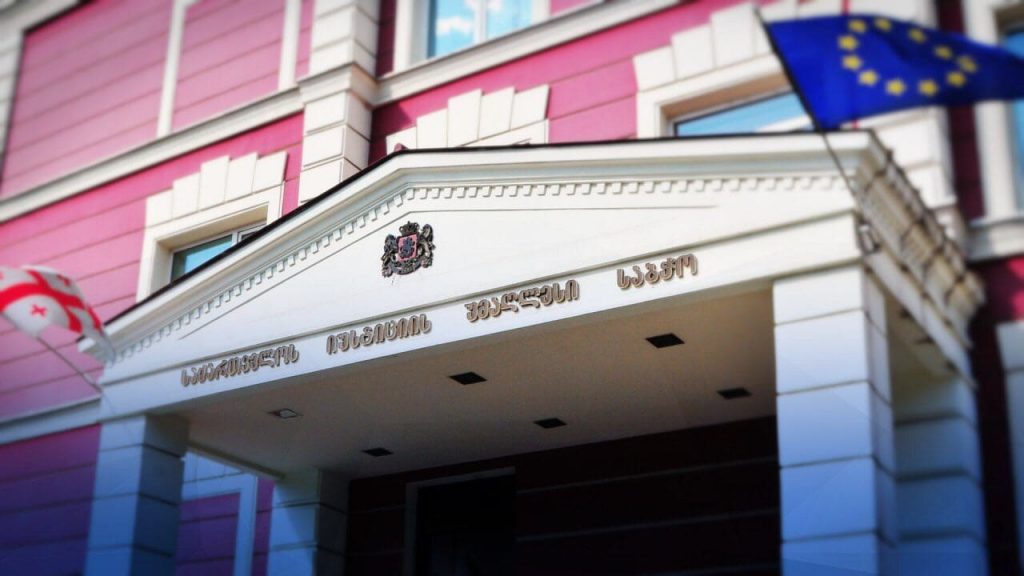An extraordinary Conference of Judges on May 26 elected four judge-members of the High Council of Justice, the body overseeing the judiciary in Georgia, despite international and civil society calls for the vote to be postponed.
The voting went amid protest by opposition politicians and heads of influential watchdog groups, as well as the Tbilisi-based Shame Movement, which alleged that the election served to strengthen the influence of a group of justices in the judiciary, often referred to as the “clan.” The civil society outfits argued that the move goes against the “spirit” of the April 19 EU-brokered deal and that new members may not have high public confidence if elected before the Parliament endorses “ambitious reform of the judiciary” envisaged in the agreement.
The conference, attended by 291 judges, elected the Supreme Court justice Levan Mikaberidze, Tbilisi Court of Appeals judge Gocha Abuseridze and Tbilisi City Court justices Temur Gogokhia and Badri Shonia, the only four nominees, to the HCoJ for a four-year term. The four judge-members will assume their responsibilities on June 25, replacing Dimitri Gvritishvili, Irakli Shengelia, Irakli Bondarenko, and Vasil Mshvenieradze.
Temur Gogokhia was the judge to impose in 2019 an initial GEL 30,000 (USD 9,000) bail on Nika Melia, United National movement leader, in the June 19-20, 2019 anti-occupation unrests case. Meanwhile, Badri Shonia was involved in pretrial hearings of controversial Birja Mafia and Cyanide cases. He is also a brother-in-law of Revaz Nadaraia, previously a judge member of HCoJ and now on the Prosecutorial Council. Mikaberidze was a judge in the case against the 2010 Defense Ministry takeover of privately-owned Tbilisi Aircraft Manufacturing.
A non-judge member of the HCoJ, Nazi Janezashvili, argued that all four candidates were representatives of the so-called “clan.” “Their past deeds are marked by the support to the decisions of the ‘clan’ in both, judicial activities and at administrative positions,” Janezashvili added.
The freshly-elected members, as well as the Deputy Chair of the Supreme Court, Giorgi Mikautadze, denied the allegations and also ruled out that the decisions made at the conference were coordinated between the justices beforehand.
U.S. Ambassador Kelly Degnan, EU Ambassador Carl Hartzell, and CoE Office Head Natalia Voutova on May 22 called for an immediate pause in any judicial appointments. But the appeal went unheeded as Parliament Speaker responded that the legislature “entitled” to leave HCoJ seats vacant until the deadline of justice reforms in spring 2022.
Also, Supreme Court Chair and Head of the HCoJ, Nino Kadagidze, warned against postponing the Conference, arguing that leaving the HCoJ seats vacant would “cause the first and second instance courts to stop functioning.”
The High Council of Justice consists of 15 members, including the Chairperson elected out of the judge-members for a four-year term. There are nine judge-members overall, including the Supreme Court Chair, appointed by the Conference of Judges. Meanwhile of the six non-judge members, five are elected by the Parliament, and one is named by the President.
Also Read:
- CSOs Say Planned Election of HCoJ Members Defies EU-brokered Deal
- Parliament Speaker Refuses Diplomats’ Appeal to Suspend Judiciary Appointments
This post is also available in: ქართული (Georgian) Русский (Russian)

